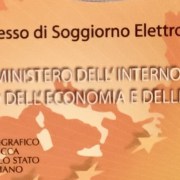Italian Divorce Law And EU Regulations
Living in a cross-cultural relationship?
We often receive questions about Italian divorce law at our law firm. Many people nowadays are part of a cross-cultural relationship and, for the most part it is an enriching and beautiful experience. However, it can also be difficult to manage if the relationship flounders.
When it comes to separation and divorce, it is wise to speak to experts, both for emotional and legal support. Regrettably, international separations and divorces are becoming more common.
Obviously, people don’t enter in to married life thinking about where the best location for a divorce would be. However, where couples choose to divorce can have a major impact on parties’ financial health, children and many other matters. Therefore getting it right is very important. Delays in decision-making can result in devastating outcomes.
Changes to Italian divorce law
In May, 2015 Italy introduced the so-called, ‘quickie divorce’ law. This cut the amount of time it takes to get a divorce from three years to as little as six months in uncontested cases and a year in contested cases.
While the new law still retains a two-step process – separation and divorce – there are three important changes.
1. Separazione consensuale – consensual separation. This is where both partners request a separation. The period of legal separation is now six months. Following the six-month separation, which begins once the couple has applied for separation in court, the couple may file for divorce.
2. Separazione giudiziale – judicial separation. This is where one partner requests a divorce. It could also apply if the couple contest issues such as child custody, division of assets (including property) or alimony arrangements. Parties have to wait 12 months to file for divorce following a court application for separation. If the procedure of separation is still pending following the 12-month period, perhaps for example because parties cannot agree on financial and other aspects of the separation, each party will be entitled to file for divorce. In this case, the judge appointed to rule on the judicial separation will merge and handle the processes for separation and divorce.
3. The new law is applicable to separation cases that are currently pending. This means those who have already filed for separation benefit from shorter divorce procedure times.
EU divorce law
The EU Divorce Law Pact or, Rome III Regulation. This aims to implement enhanced cooperation in the area of applicable law for divorce and legal separation. Essentially, EU divorce law allows expat couples in Italy to choose either the divorce laws of Italy, or those of the country where the couple previously lived or the country of their nationality. This also applies to and mixed marriage couples, where one partner is Italian and the other is not. The decision regarding applicable country law needs to be made before divorce proceedings begin.
15 countries including Italy adopted the Rome III Regulation. Italian law and courts govern divorce procedures if a couple does not stipulate an applicable country law and are ordinarily resident in Italy. This would also apply where one partner is resident in Italy and starts proceedings here. However, one of the partners can return to their home country for six months or more and start proceedings there before Italian proceedings begin.
Matrimonial property regimes
Another aspect to consider in the choice of divorce law is matrimonial regimes. For example, English courts often split a couple’s assets 50/50. Italian courts look more closely at what belongs to whom. This is because when they get married, couples in Italy may choose between a matrimonial regime of shared ownership, comunione dei beni or separate ownership separazione dei beni of their worldly goods in the event of divorce or death.
Unless otherwise stipulated in an agreement, at the start of a marriage or at any time during a marriage, comunione dei beni is the default matrimonial regime. Italian law considers expat couples married elsewhere but resident in Italy married according to this regime. The comunione dei beni regime regards property acquired by the couple during their marriage to be jointly owned. Regardless of whether couples purchased assets individually or together if the couple divorces, assets will be split 50/50.
In 2019, two new EU regulations entered into force. These regulations determine homogeneous rules applicable to property regimes in cross border situations. In effect, these regulations determine jurisdiction and applicable law for matrimonial and registered partnership property regimes. In case of divorce, separation or the death of one of the spouses or partners, the regulations also need consideration.
Exceptions
There are however exceptions. For example, if a partner purchased property prior to the marriage this would belong solely to the partner in the event of a divorce. Likewise if a partner acquires property after the marriage as a gift or an inheritance. The choice of matrimonial regimes can therefore have an important impact on choice of applicable law in the event of separation and divorce.
Consider the case of an English couple who married in London 12 years ago. The wife inherited a significant sum of money as well as a house in Italy from her parents. Four years ago, the husband persuaded the wife that they should move to Italy to live in the property she had inherited. Then, 12 months later, the husband moved back to the UK and filed for divorce. The English court gave the husband 50% of all the couples’ assets. The Italian courts would have treated the inherited assets as belonging solely to the wife.
Finally …
Each case is different. We recognise that so many issues need consideration and decisions need to be made at what is a very stressful time. Which applicable law to choose requires careful consideration. An experienced lawyer familiar with cross-border divorce law and the complexities which make these divorces so difficult will be able to guide you. If you need assistance, please don’t hesitate to contact us. We are here to help.
You may also like to watch our info videos.
Get All Our FREE Guides for Foreigners Planning to Buy, Sell or Live in Italy
Our PDF guides give you all the knowledge you need to move your Italian dream forward with confidence
Download now









